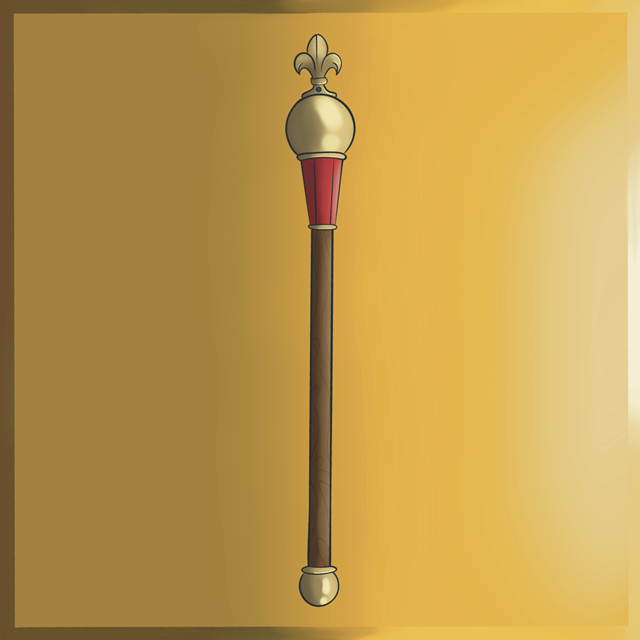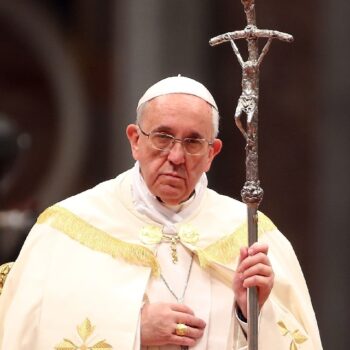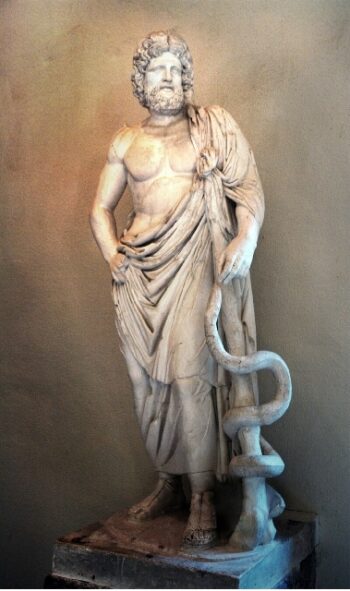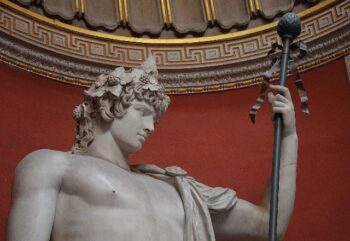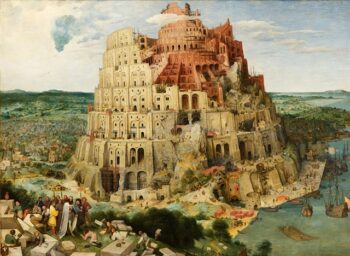Definition:
Scepters are ceremonial staffs held by rulers as a symbol of their authority and sovereignty.
Etymology:
The word “scepter” comes from the Latin “sceptrum,” which in turn is derived from the Greek “skēptron,” meaning “staff” or “baton.” This term has been used in English since the Middle Ages to denote a symbol of regal authority.
Description:
Scepters are typically adorned with precious metals, gemstones, and intricate designs, emphasizing the ruler’s regal status. Scepters represent the ruler’s power to govern and make decisions, often used during formal ceremonies and events to underscore their authority.
Symbolism:
Scepters are symbolically the same as magic wands, which are metaphores for being able to control people with lies.
In Ancient Egypt, Pharaohs were often depicted holding a scepter called the “heqa,” symbolizing their dominion and god-given right to rule.
Articles:
Illuminati
Definition: “Illuminati” refers to individuals who understand how language, religion, and the world system are scams. Etymology: The term “Illuminati” originates from Latin and means “the enlightened.” It is derived…
Papal Ferula
Definition: A “papal ferula” is a ceremonial staff carried by the Pope. Etymology: The term “ferula” comes from the Latin word “ferula,” meaning “rod” or “staff.” It has historically been…
Staff of Asclepius
Definition: The “Staff of Asclepius”, also knows as “Rod of Asclepius,” is a symbol associated with medicine and healthcare. It consists of a single serpent entwined around a rod. Etymology:…
Thyrsus
Definition: A “thyrsus” is a staff or wand entwined with ivy and topped with a pine cone, associated with Dionysus (Bacchus), the Greek (and Roman) god of wine, fertility, and…
Tower of Babel
Pieter Bruegel the Elder: The Tower of Babel (1563). Lucas van Valckenborch: Tower of Babel (1594). Gustave Doré: The Confusion of Tongues. Definition: “Babel’s Tower” is a fictional tower from…
Religion:
The scepter appears frequently in the Bible as a symbol of kingship and divine authority.
- In the Bible, in Genesis, chapter 49, verse 10, it says: “The scepter will not depart from Judah, nor the ruler’s staff from between his feet, until he to whom it belongs shall come and the obedience of the nations shall be his.” “Between his feet” is obviously a way to make staff a metaphor for penis.
- In the Bible, in Numbers, chapter 24, verse 17, it says: “I see him, but not now; I behold him, but not near. A star will come out of Jacob; a scepter will rise out of Israel. He will crush the foreheads of Moab, the skulls of all the people of Sheth.”
- In the Bible, in Esther, chapter 4, verse 11, it says: “All the king’s officials and the people of the royal provinces know that for any man or woman who approaches the king in the inner court without being summoned the king has but one law: that they be put to death unless the king extends the gold scepter to them and spares their lives.”
- In the Bible, in Esther, chapter 5, verse 2, it says: “When he saw Queen Esther standing in the court, he was pleased with her and held out to her the gold scepter that was in his hand. So Esther approached and touched the tip of the scepter.”
- In the Bible, in Hebrews, chapter 1, verse 8, it says: “But about the Son he says, ‘Your throne, O God, will last forever and ever; a scepter of justice will be the scepter of your kingdom.'”
- In the Bible, in Psalm, chapter 45, verse 6, it says: “Your throne, O God, will last forever and ever; a scepter of justice will be the scepter of your kingdom.”
- In the Bible, in Ezekiel, chapter 19, verse 11, it says: “Its branches were strong, fit for a ruler’s scepter. It towered high above the thick foliage, conspicuous for its height and for its many branches.”
- In the Bible, in Amos, chapter 1, verse 5, it says: “I will break down the gate of Damascus; I will destroy the king who is in the Valley of Aven and the one who holds the scepter in Beth Eden. The people of Aram will go into exile to Kir,” says the Lord.
